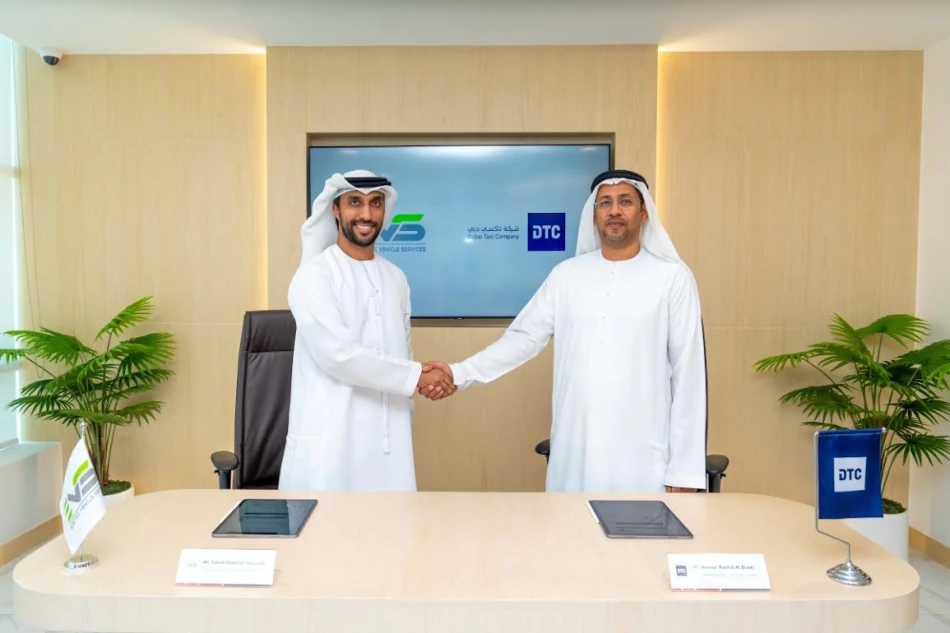
Dubai Goes Green: Taxi Joins Forces with EVS to Boost Eco-Friendly Mobility
Dubai Taxi Secures Strategic EV Maintenance Partnership as Gulf Accelerates Green Transport Revolution
Dubai Taxi Company has signed a comprehensive maintenance agreement with EVS, the UAE's first specialized electric vehicle service center, to maintain 440 electric taxis and limousines. The partnership represents a critical infrastructure move as Dubai races toward its ambitious carbon neutrality goals, highlighting how Gulf states are building the operational backbone needed to sustain their electric vehicle transitions beyond initial fleet purchases.
Specialized Maintenance: The Missing Link in EV Adoption
The agreement addresses a crucial gap in the Middle East's electric vehicle ecosystem. While governments across the region have announced ambitious EV targets, the technical infrastructure for maintaining these vehicles has lagged behind. EVS will handle high-voltage battery diagnostics, electric motor servicing, thermal management systems, software updates, and drivetrain recalibration—services that require specialized equipment and certified technicians unavailable at traditional automotive service centers.
This partnership underscores a broader reality facing fleet operators worldwide: electric vehicles require fundamentally different maintenance approaches than combustion engines. Dubai Taxi's proactive move to secure dedicated EV servicing suggests the company has learned from early adoption challenges faced by electric taxi fleets in cities like London and New York, where maintenance bottlenecks initially hampered operations.
Strategic Timing Aligns with UAE Climate Commitments
The maintenance deal directly supports Dubai's Clean Energy Strategy 2050 and the UAE's Net Zero 2050 initiative. However, beyond the environmental messaging, this partnership reveals the practical infrastructure investments required to make these climate commitments operational reality.
Regional Context and Competition
Dubai's approach contrasts with other Gulf states' EV strategies. While Saudi Arabia focuses heavily on domestic EV manufacturing through partnerships with companies like Lucid Motors, and Qatar emphasizes charging infrastructure expansion, Dubai is prioritizing the service ecosystem that keeps electric fleets operational. This maintenance-first approach could provide Dubai with more reliable EV operations as regional competition for sustainable transport leadership intensifies.
Market Implications for EV Service Sector
EVS's emergence as the UAE's first dedicated electric vehicle service center signals a nascent but potentially lucrative market opportunity. As regional governments push fleet electrification mandates, specialized maintenance providers could see explosive growth. The company's partnership with Dubai Taxi provides crucial operational experience and credibility that could accelerate expansion across the Gulf.
For investors, this development highlights the service and infrastructure plays surrounding EV adoption rather than just vehicle manufacturing. Companies providing charging solutions, battery recycling, and specialized maintenance services may offer more stable returns than the volatile EV manufacturing sector.
Operational Reliability as Competitive Advantage
Dubai Taxi's emphasis on maintenance infrastructure reflects hard-learned lessons from global EV fleet deployments. Early electric taxi programs in cities like Amsterdam and Shenzhen faced significant downtime issues when vehicles required specialized repairs that local mechanics couldn't perform.
By securing dedicated maintenance capabilities upfront, Dubai Taxi positions itself to maintain higher vehicle availability rates—a critical metric for taxi operations where downtime directly impacts revenue. This operational reliability could provide competitive advantages as Dubai's taxi market faces increasing competition from ride-sharing platforms and autonomous vehicle pilots.
Building Blocks for Regional EV Ecosystem
The Dubai Taxi-EVS partnership represents more than a simple service contract. It establishes the technical expertise and operational protocols that other UAE fleet operators will likely need as electric vehicle adoption accelerates. EVS's experience maintaining Dubai's 440-vehicle electric fleet could position the company to service broader commercial and government fleets across the Emirates.
This infrastructure-focused approach suggests Dubai recognizes that sustainable transport success depends not just on purchasing electric vehicles, but on building the comprehensive service ecosystem required to operate them reliably over their full lifecycle.
Most Viewed News

 Sara Khaled
Sara Khaled






